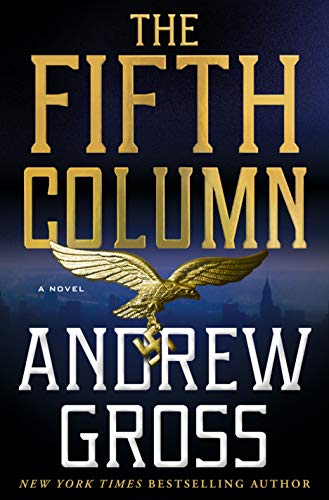The Fifth Column
In New York City in the summer of 1941, Charles Mossman has a long way to go to regain people’s trust. He’s just been released from prison after two years for manslaughter after his drunken rage at Nazi sympathizers cost an innocent teenager his life. His estranged wife allows him two afternoons a week with his daughter, and a series of odd behaviors have him convinced that her elderly Swiss neighbors are actually Nazi spies. But who is going to believe an ex-drunk ex-con?
Gross adeptly captures the period before America entered World War II, when the country hoped to preserve its neutrality so that while Nazi sympathizers were scorned, it wasn’t illegal to be one. Charles can’t persuade the police to investigate, and his assertions only anger his wife and induce her to start divorce proceedings. The book moves along at a rapid pace, so character is often sacrificed to action. Villains may as well have big red arrows pointing at them, and the astute reader can figure out that Charles is being played before he does. It’s still an effective read, however. The fanaticism and single-minded belief in a country’s superiority of the World War II era is all too sadly recognizable in the 21st century.










